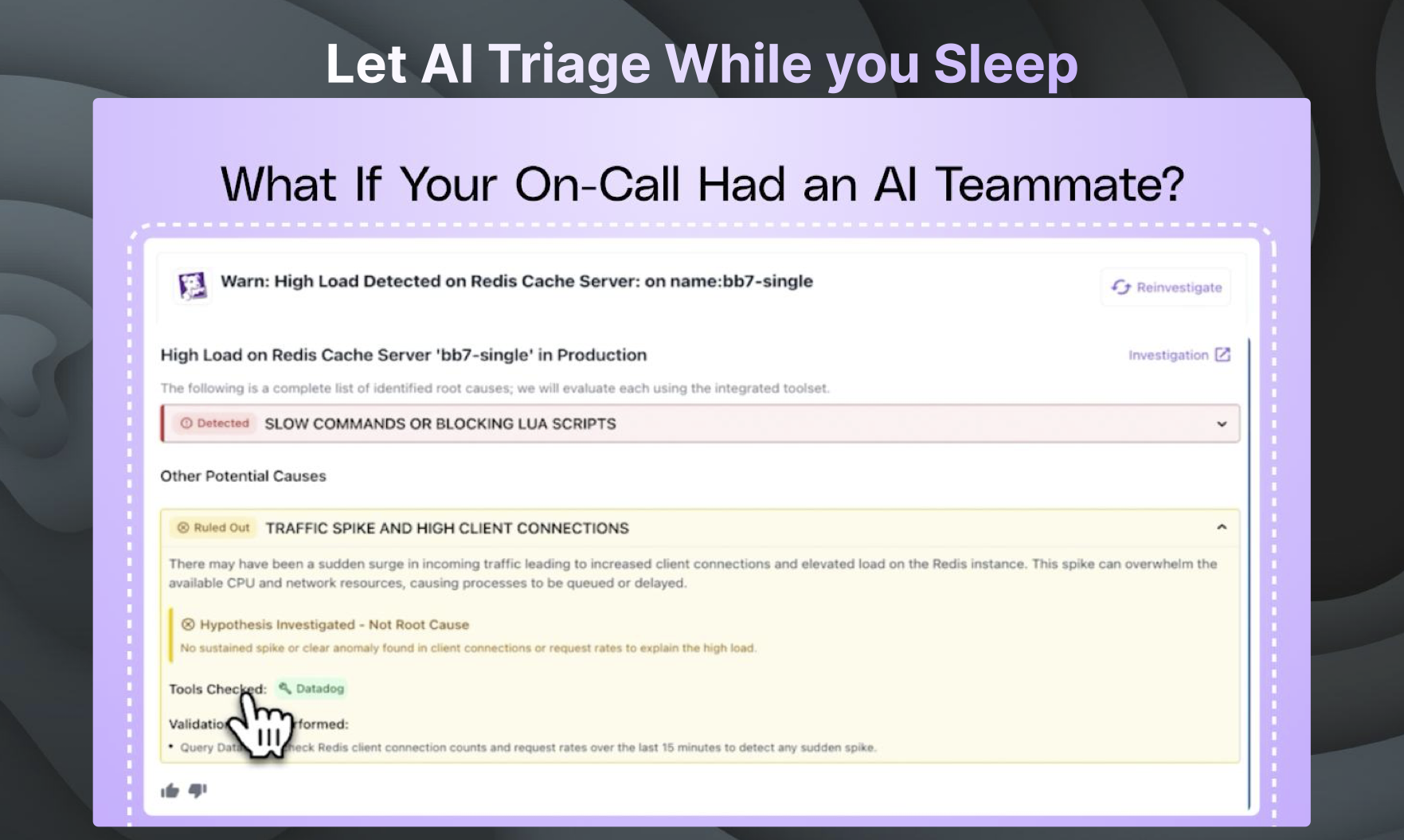Table of Contents
Overview
In the fast-paced world of DevOps, every second counts when an incident strikes. Imagine having an AI-powered teammate ready to jump into action, diagnose the problem, and even start fixing it before you’ve even finished your coffee. That’s the promise of DrDroid, an AI agent designed to revolutionize production incident management. It’s time to explore how DrDroid can transform your incident response from reactive to proactive.
Key Features
DrDroid boasts a powerful suite of features designed to streamline incident management:
- Automated incident triaging and troubleshooting: DrDroid intelligently analyzes alerts to quickly identify the root cause of incidents, saving engineers valuable time.
- Integration with 50+ tools (e.g., Datadog, Grafana, Kubernetes): Seamlessly connects with your existing infrastructure and monitoring tools for comprehensive incident management.
- Real-time alert evaluation and dynamic plan generation: DrDroid evaluates alerts as they occur and dynamically creates troubleshooting plans tailored to the specific situation.
- Self-learning capabilities from user feedback: Continuously improves its performance by learning from user feedback and past incidents, becoming more effective over time.
- Option for read-only or action-taking modes with audit logs: Provides flexibility in how it’s used, allowing for observation and analysis before enabling automated remediation, with full audit trails for accountability.
How It Works
DrDroid operates like a highly skilled detective for your infrastructure. When an alert triggers, DrDroid springs into action. It evaluates the situation in real-time, generating a dynamic troubleshooting plan based on a deep understanding of your system’s architecture, runbooks, monitoring tools, and historical incident data. As it uncovers new information, it adapts its approach, following leads and narrowing down the root cause. This intelligent, adaptive approach ensures efficient and effective incident resolution.
Use Cases
DrDroid is a valuable asset for various teams and organizations:
- Engineering teams seeking automated incident management: Automate repetitive tasks and free up engineers to focus on more complex issues.
- Organizations aiming to reduce mean time to resolution (MTTR): Quickly identify and resolve incidents to minimize downtime and its impact.
- Businesses looking to integrate AI into their DevOps workflows: Embrace AI-powered automation to improve efficiency and agility in DevOps processes.
Pros & Cons
Advantages
- Enhances incident response efficiency, leading to faster resolution times.
- Reduces manual workload for engineers, freeing them up for more strategic tasks.
- Continuously improves through feedback, becoming more effective over time.
Disadvantages
- Initial setup requires integration with existing tools, which may require some initial effort.
- May need time to adapt to specific organizational workflows and nuances.
How Does It Compare?
When considering incident management solutions, it’s essential to compare DrDroid with its competitors. PagerDuty offers robust incident response automation but may lack the AI-driven troubleshooting plan generation that DrDroid provides. Opsgenie excels in alerting and on-call management but places less emphasis on automated remediation compared to DrDroid’s proactive approach. DrDroid’s AI-powered approach to incident management sets it apart from traditional solutions.
Final Thoughts
DrDroid represents a significant step forward in incident management, offering a powerful blend of automation and AI-driven intelligence. While initial setup and adaptation may require some effort, the potential benefits in terms of reduced MTTR, increased engineer productivity, and improved overall system reliability make DrDroid a compelling solution for organizations looking to embrace the future of DevOps.
